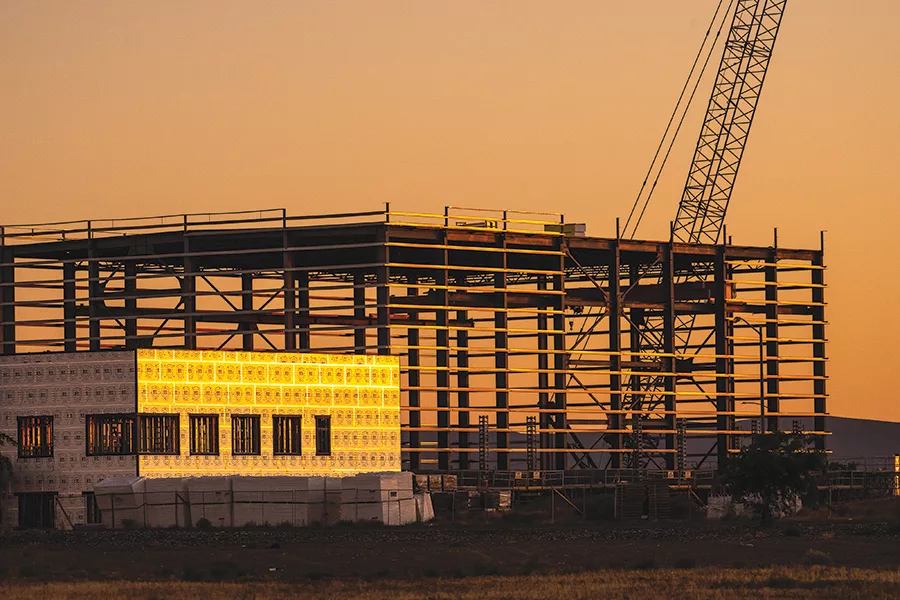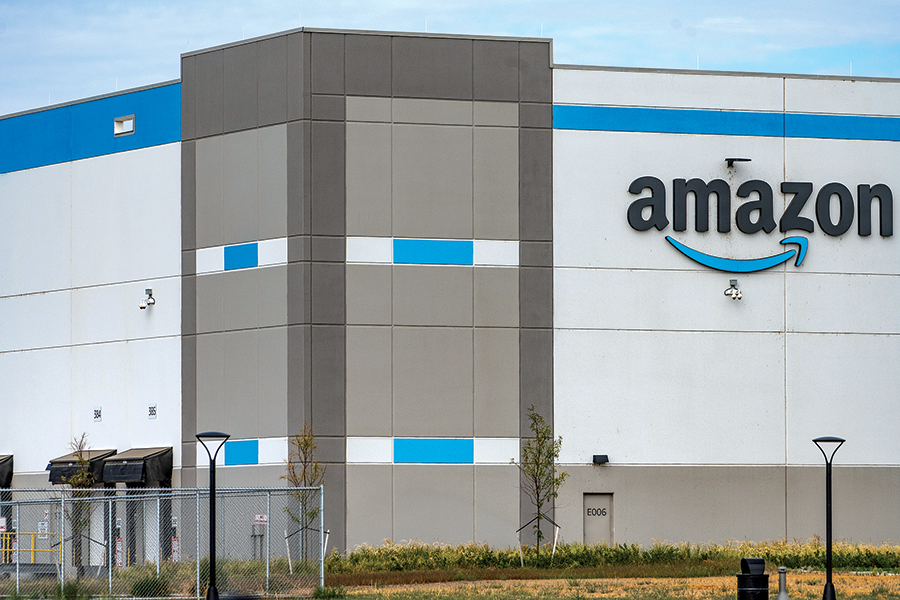
Home » Commercial Real Estate: Rising interest rates don’t dampen cautious optimism
Commercial Real Estate: Rising interest rates don’t dampen cautious optimism

October 11, 2023
The story of commercial construction in the Tri-Cities right now has a simple theme: Things may have cooled a bit due to factors such as higher interest rates, but there’s no reason to panic.
“Although we may see a little bit of a slowdown in the pace of new work, I do believe there’s enough going on in the Tri-Cities that we shouldn’t see any drastic negative impacts to anybody anytime soon,” said CJ Black, project executive for the Pasco-based Elite Construction + Development.
His company has a healthy list of projects going on or in the works, Black said.
Among them is a mixed-use development in the Southridge area of Kennewick called The Falls on 24th, which will feature residential units, storage, a clubhouse and street-front commercial space.
The first phase of The Falls is expected to wrap up in summer 2024.
Other projects include a new pre-engineered metal building, or PEMB, going up in the Road 68-Rodeo Drive area of Pasco. The primary occupant will be a sports training operation.
The wider view
Statewide, employment in construction is up 4,000 jobs year-over-year, led by an increase of 4,300 specialty trade contractors, according to the state’s most recent monthly employment report.
Nationwide, contractors are working through backlogs, according to Associated Builders and Contractors (ABC). And overall, the group’s Construction Confidence Index readings for sales, profit margins and staffing levels made gains in August. All three readings are above the threshold of 50, which indicates expectations of growth over the next six months, the group said in a statement.
“There’s no sign of a construction recession in the near term. If anything, contractors are more upbeat, as policy and technology shifts along with economic transformation are creating substantial demand for improvements and growth in America’s built environment,” said ABC Chief Economist Anirban Basu in the statement. “While a plurality of contractors expects only small improvements in sales, profit margins and staffing over the next six months, even incremental improvement is remarkable in the context of tightening credit, higher project financing costs and lingering fears of recession.”
Major projects
Some major commercial construction projects are planned or are in various stages of completion in the Tri-Cities. In Pasco, Local Bounti is working on a $40 million commercial greenhouse complex, Darigold is building a new $600 million production facility and Amazon has finished two distribution centers that are expected to bring in 1,500 jobs.

Reser’s Fine Foods is building a 70,000-square-foot addition to its processing plant north of Pasco.
In Richland, ATI Inc. Is expanding its titanium melting plant, and Atkins Nuclear Secured is building a new $20 million technology center.

Reasons for optimism
Derrick Stricker, a designated broker and the founder and chief executive officer of Stricker CRE in Kennewick, said this year has been marked by quarterly waves. He saw a quiet first quarter, followed by a “gangbusters” second quarter where “everyone who was waiting on the sidelines came out to play.” After a quieter third quarter, typical of summer months, he’s gearing up for “a fourth-quarter close-out,” he said.
Stricker urged “optimism with historical caution,” he said.
“I don’t know why we shouldn’t be optimistic given the true conditions of what I see and what we see in the commercial real estate world,” he said. “Let’s be cautious of things – just because things look cheap here or vacancy is low ... doesn’t mean it’s guaranteed. But I think this is a great market to go play in and I think this is a great time for actual seasoned local and regional commercial real estate investors or users/business owners that are making a play. Our overall economy is strong in the Tri-Cities.”
While the Tri-Cities isn’t immune to economic ups and downs, it is traditionally insulated to some degree because of the steady federal government presence and continued growth.
“That being said, obviously we’ve seen a few challenges over the last couple of years, primarily in the supply chain and higher interest rates,” said Joel Bouchey, regional director and public policy coordinator for Inland Northwest Associated of General Contractors.
For the most part, the supply chain issues have resolved, he said, noting that while electrical equipment is still sometimes held up, “we’re seeing less and less of that every month.”
And while the rise in interest rates has impacted developers and businesses, “we’ve seen people generally getting back on board with moving forward with their plans,” he said.
The Tri-Cities area is seeing the most growth commercially in industrial buildings and flex spaces, Bouchey said. And while there is a small uptick in the number of vacant commercial spaces, it’s “certainly not like other regions,” he told the Tri-Cities Area Journal of Business.
In terms of the outlook for commercial construction locally, “I would distill it as steady and cautiously optimistic,” Bouchey said. “For all that you continue to see in the national headlines, economists say, ‘We’re expecting a recession, we’re expecting a recession,’ I’m not seeing anything that’s trending towards that. I think most people have just adapted to the new financial situation, have altered their plans accordingly or found the additional funding and are making it happen.”
Construction + Real Estate
KEYWORDS october 2022





